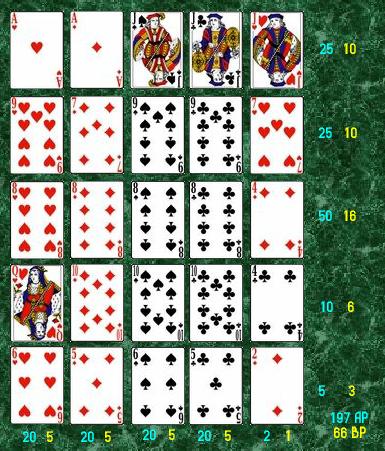Quick Poker Odds
Using a Poker odds Calculator. Want to know how far ahead or behind you are in a Texas Hold’em hand against one, two or more opponents? Our poker calculator is the perfect medium for finding out the odds in any given situation. Poker odds calculate the chances of you holding a winning hand. The poker odds calculators on CardPlayer.com let you run any scenario that you see at the poker table, see your odds and outs,.
- Use my free pot odds & implied odds tool today: video was created by for htt.
- Determine the pot odds. The pot odds represent the number of times out of 100 you need to achieve a hand to break even. Professional poker players compare the pot odds to the hand odds before calling bets on the turn and river. When pot odds exceed hand odds, a solid betting situation exists. After the flop, there is $50 in the pot.
Quick Poker Odds

Everybody wants to win big in poker every time. If you go online, you’ll find loads of tips promising you that. But one thing is certain, you cannot always win in poker.
Doesn’t sound like what you wanted to hear? Not even the pro players win every day. If they did, average people would never come close to winning a single dime at the game.
However, that’s not to say that you cannot win at all. In fact, you can win often! But not every time; there’s no forever champion in poker.
All you just need is a consistent winning strategy – tips to guide you to victory at least 6-9 times out of every 10 sessions played.
In this guide, we’ve got such tips. Read on to find out about them!
Start with the free bonuses
Almost every poker site and agents out there offer tantalizing free bonus offers to new players. Before you go ahead to risk your hard-earned money, this free-to-play options are where you want to begin your trial sessions. Even if you have all the required poker skills and strategies at your fingertips, it wouldn’t cost you anything to sharpen your skills well enough before playing against real money opponents. Poker agents like Agen Judi Domino Poker QQ Terpercaya offer many of these free-to-play games on their site.
Play very few hands but be aggressive with them
There’s no denying that poker is a psychological game. Blink your eyes too often and someone might read it to mean a tell. Delay on the mouse for too long and someone might think you have a hand you’re unsure about. In the same vein, when you play aggressively, even your speculative hands, it scares your opponents into thinking you’ve got the stronger hands.
However, trying to play too many hands just because you want to dominate play is not going to get you anywhere. Yes, it’s important to play your hands aggressive so as to disguise the actual strength of your hands, but you don’t want to play too many hands.
Don’t be the first to limp
Limping is when you call the big blind preflop. Please for your own good, don’t ever be the first guy to limp. There are two main reasons why it’s wrong to be the first to limp. First, the chances of winning the pot before the flop are lesser than the chances of winning the pot if you had raised instead. Secondly, you give the players playing after you a very enticing pot odd.
The best time to limp is when at least one other player has already limped.
Semi-bluff: Let your cards be your bluff-call
If you’re going to win in poker, there’s no way you won’t have to bluff. But how you do it is what determines whether you bleed your bankroll to death or you smile at the bank.
That’s why we suggest letting your cards dictate how and when you bluff. For starters, it’s always best to bluff when you have hands that have outs to improve to the best hand on a later street, such as flush draws, overcard, or straight draws.


Some poker players call these bluffs the semi-bluffs because of how it protects the player’s edge in case their bluff gets called.
Follow your big blind with strong hands
Quick Poker Odds
It is good enough that you’ve invested one big blind into the pot. So, don’t follow it up with thrash hands like 9♠ 5♦, but the more borderline hands like K♣ 9♦ and Q♥ 6♥.
To defend your big blind effectively, follow these tips:
• Play tighter if you’re playing against players in the early positions and looser if against those in late positions.
• Number of players in the hand (when 1 or more players has already called the raise, play tighter and only call with hands that do well in multiway pots).
• The size of the raise (the larger the bet sizing, the tighter you should play and vice versa).
• Stack sizes (when short stacked, play fewer speculative hands and prioritize high card strength).
Fold When You’re Unsure

Want to know the biggest difference between a bad player and a professional player? It’s the good player’s ability to lay down a good hand like top pair when they think they are beaten.
This sounds very simple, but it is very hard to do in practice partly because of the way our brains are built. We are naturally curious and we naturally want to win. When we fold, we surrender our chance to win the pot and we don’t get to satisfy our curiosity by finding out what our opponent has.
Quick Way To Calculate Poker Odds
Calling too often and in the wrong situations is the second fastest way to lose at poker (after ineffective bluffs). Whenever you’re unsure whether to call or fold versus a bet or raise, do yourself a service and fold.